Diving to New Depths
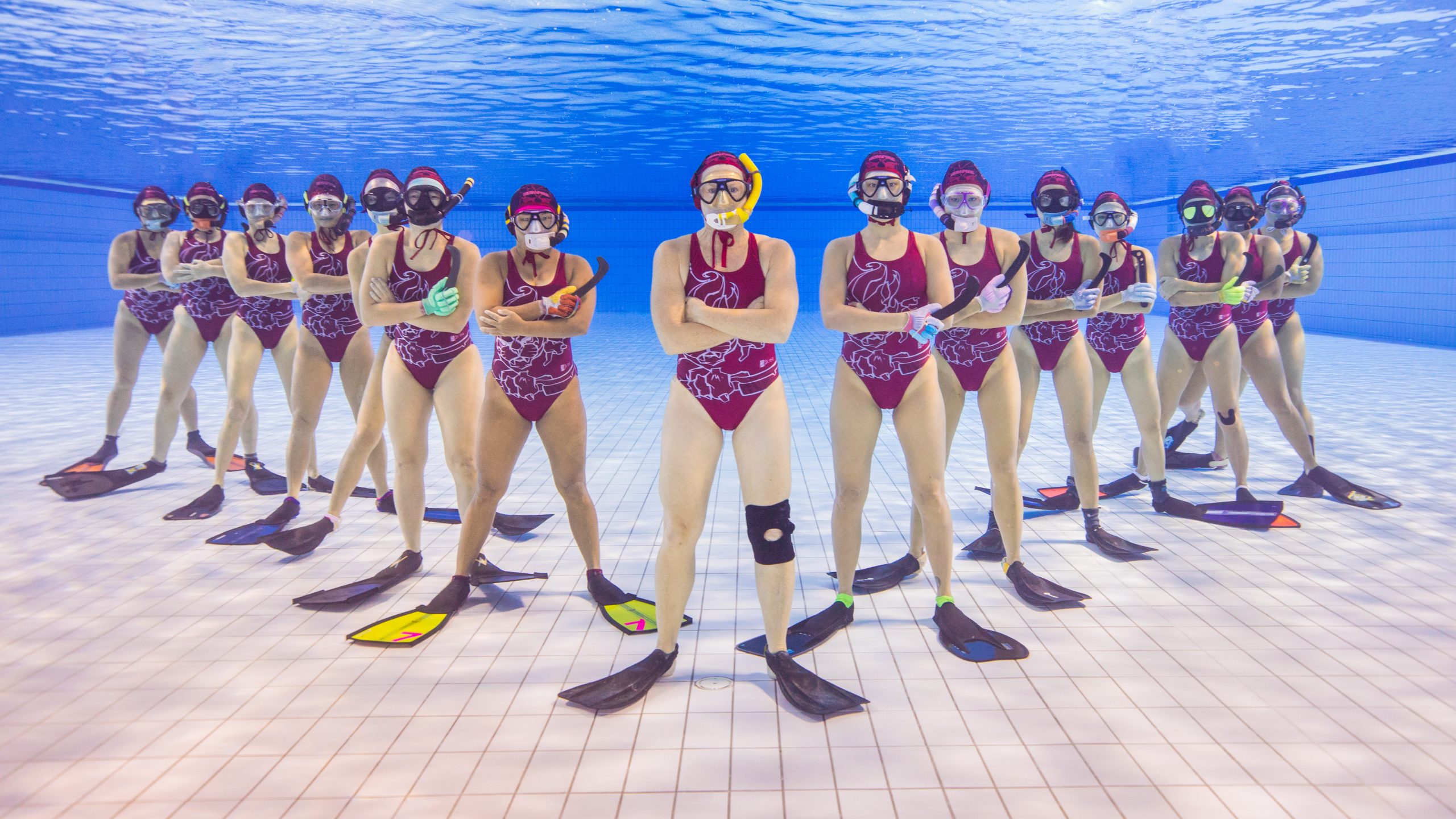
Chi Kuen (6th from the left) with the SEA Games training squad from the Singapore Underwater Hockey Women’s Team and their team coach. (Photo credit: Stirling Underwater Hockey Club)
Despite being unable to swim, Assistant Laboratory Manager Lee Chi Kuen from the Department of Pathology boldly attempted underwater hockey 13 years ago and eventually made the women’s team that won all the golds on offer at the recent SEA Games in December 2019.
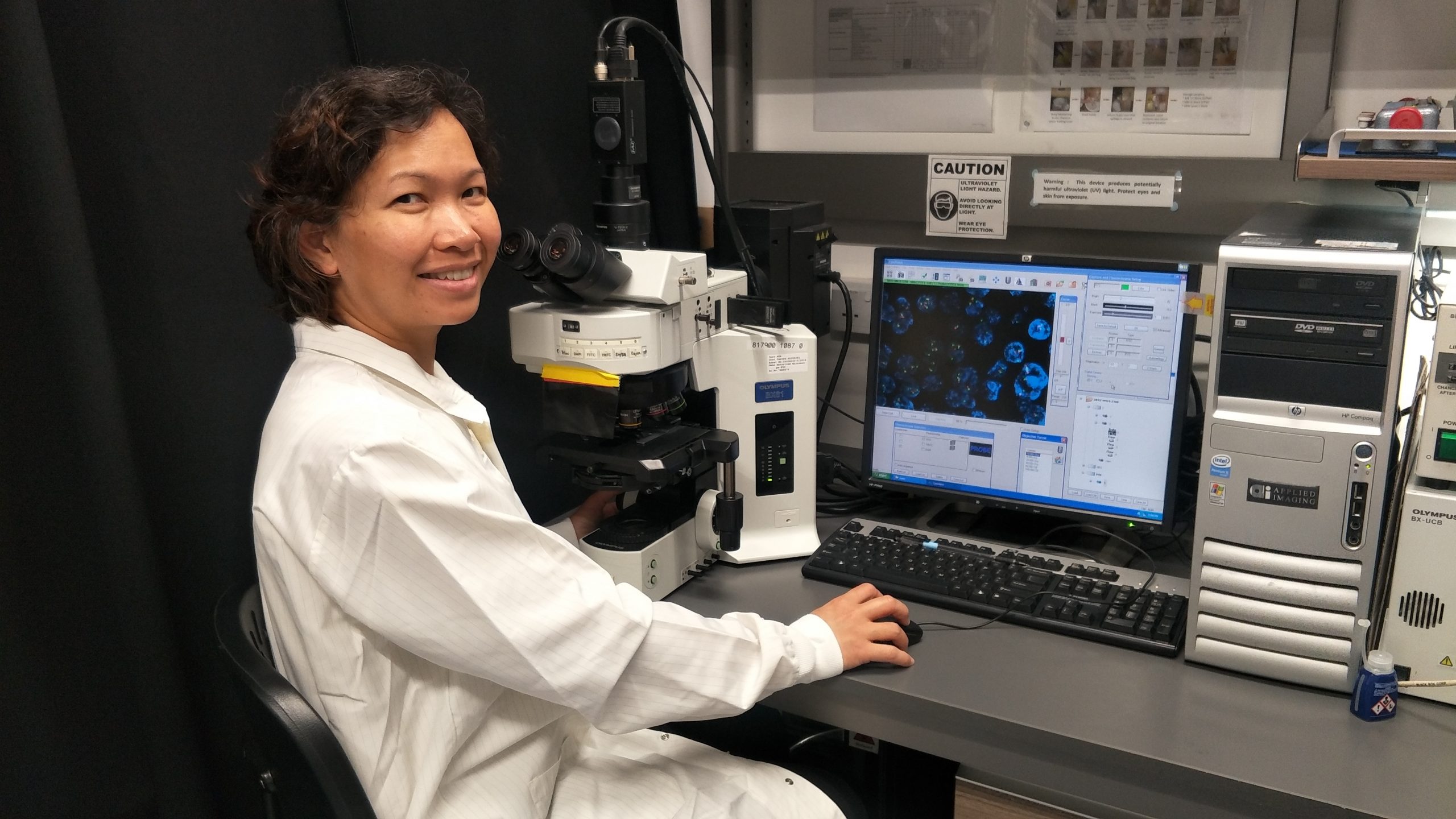
Chi Kuen works with NUS Medicine’s Department of Pathology
Imagine diving to the bottom of a pool with snorkels and fins, jostling with others as you try to push a heavy puck through the water into a goal at the other end, while having to catch the occasional breath above water.
One’s mind might draw a blank when asked what underwater hockey is all about. Introduced to the Singapore sports scene only in 2004, many may not be familiar with the sport or how it is actually played. Also known as ‘Octopush’, underwater hockey is a sport invented by the British Naval Divers in the 1950s and made its recent Southeast Asian (SEA) Games debut in December 2019. Staring down strong competition from three other countries, Singapore’s underwater hockey teams made history by bagging all four golds at the 30th SEA Games.
Lee Chi Kuen, an assistant laboratory manager from the Department of Pathology, was part of the women’s team. She believed right from the beginning that their victory was possible. In preparation for the games, the team ramped up their training six months before the competition. Each member was required to clock in 11 training sessions each week. This meant hitting the pool for both underwater hockey and swim trainings, as well as the gym for weight trainings, twice on some days.
“Training was top priority, so I had to be very disciplined about my time management in order to set aside the required hours. I rejected all socials, and ensured I started and ended work on time,” recollected Chi Kuen, who kept a strict record of the training hours and sleep she had each day leading up to the games. Chi Kuen had to maintain equal discipline about what she ate or drank, so that she had enough protein to build the strength required for the competition. Entering the games also meant she had to be especially careful to avoid supplements that contained prohibited ingredients, which could run her into doping issues.
For Chi Kuen, the journey had always been a challenging one. When she was first introduced to the sport in 2006, Chi Kuen was clueless about swimming and using snorkelling equipment. She shared, “My first time was a disaster and all I could do was swallow water! I told myself that would be my first and last session.”
Despite a distressing first attempt, Chi Kuen was undaunted. Friends she knew from the sport encouraged her to overcome her fear of water. Chi Kuen drew strength from their support and on her own, poured in extra practise hours. She eventually exceeded her own expectations: not only did she pick up the sport, she also learnt to swim and even scuba-dive. Soon, she saw herself participating in underwater hockey tournaments and competitions with other countries. “There was a lot of catching up to do—in terms of my swimming skills, water confidence, stamina and breath hold. But I was very passionate about the sport, so I kept pushing myself to train harder in order to be better,” recounted Chi Kuen.
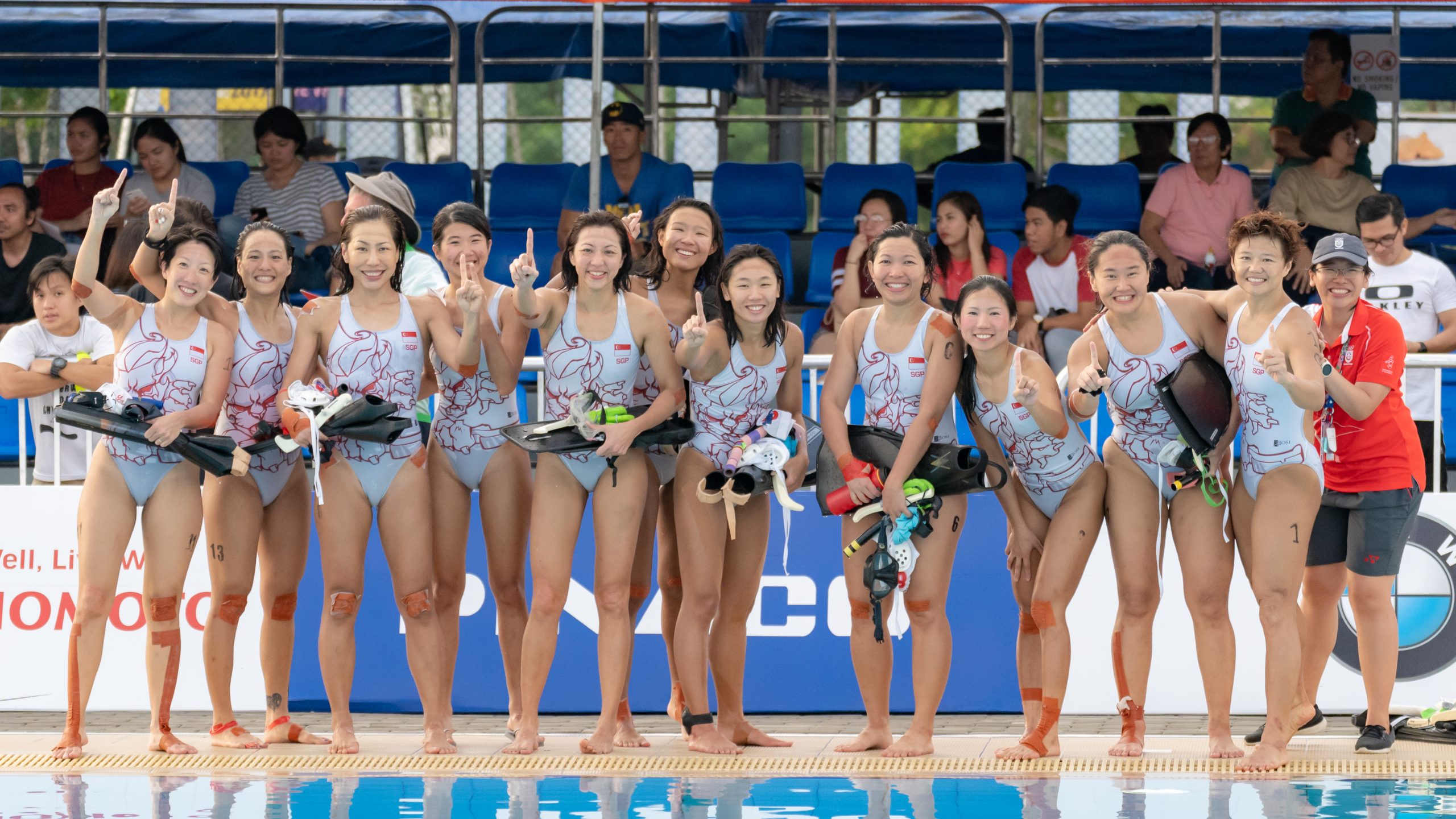
Chi Kuen (fifth from right) with her fellow team mates from the Singapore Underwater Hockey Women’s Team. (Photo credit: Carlos Tan)
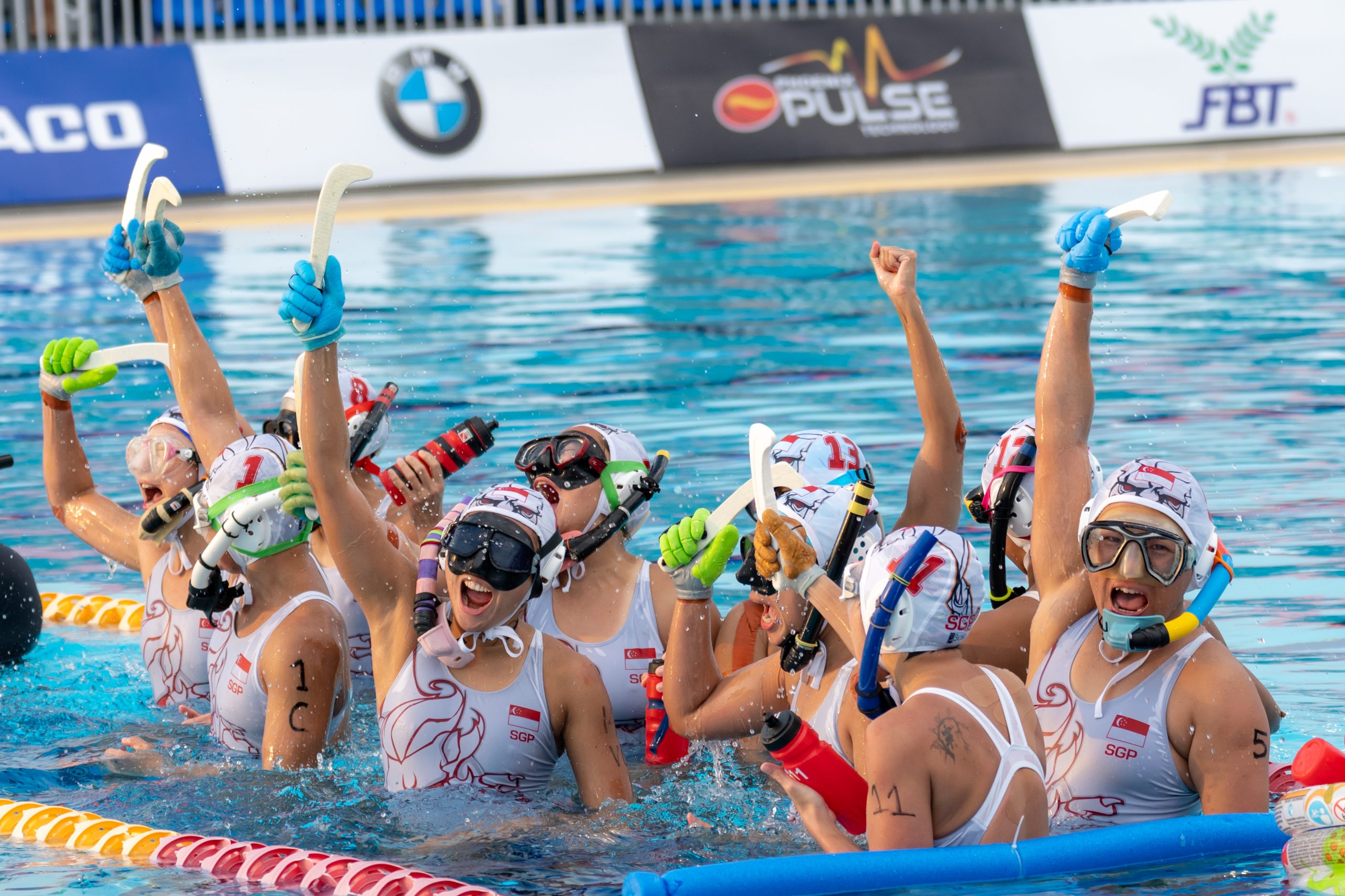
Chi Kuen and her team, as they emerged victorious at the SEA Games 2019. (Photo credit: Carlos Tan)
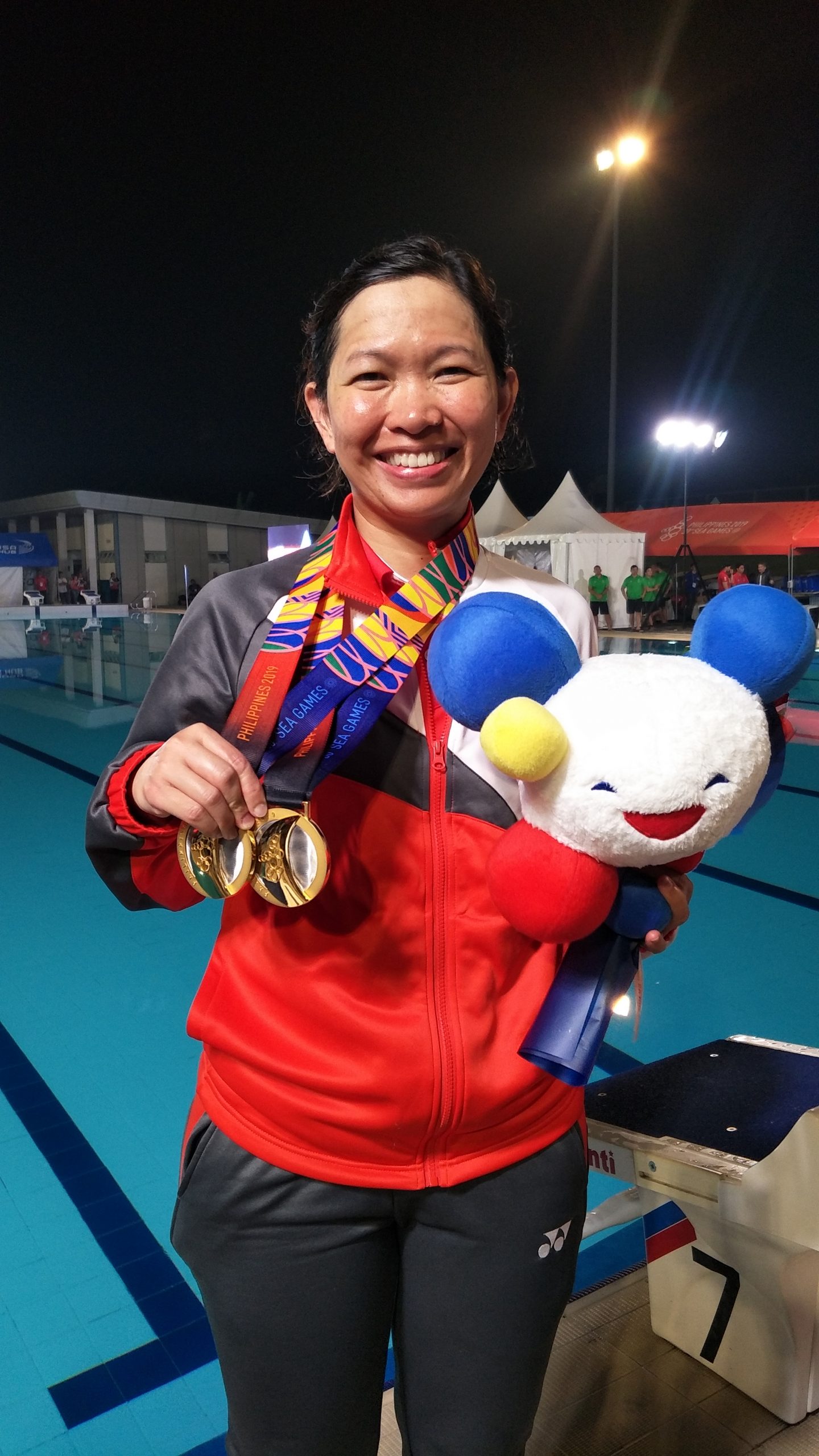
Chi Kuen with her gold medals and SEA Games mascot. (Photo credit: LCK)
When the team finally arrived in Philippines for the games, they had to remain focused and be kept from distractions. All of them had to comply with strict regulations and download a Global Positioning System (GPS) tracker on their mobile phones, so that the authorities had oversight of their location. Restricted from leaving the hotel, Chi Kuen and her team mates prepared beforehand all the food and snacks they would need to consume between games to last through the days of the competition. She joked, “It almost felt like we were in prison since we were not allowed to go anywhere we wanted, and all the food we had was from the hotel. At some point, I became a little too well-versed with the buffet and craved our local hor fun very badly.”
“Training was top priority, so I had to be very disciplined about my time management in order to set aside the required hours. I rejected all socials, and ensured I started and ended work on time.”
— Lee Chi Kuen, Assistant Laboratory Manager
Leading up to the games, Chi Kuen faced a lot of pressure and anxiety as she thought about what might happen during the match. Besides counting on her cats and mobile games to de-stress, she remained focused on what was most important: keeping fit and ready for the games.
The discipline and tremendous hard work paid off: both the men’s and women’s teams beat their strongest contender, the Philippines, who upped their game in the final match. Chi Kuen recalled that the Philippines team devised a ‘wall’ formation, and placed themselves in strategic positions to lock her team in to shut down their defence. She elaborated, “We put up a very fierce fight, and kept to our agreed game plan—the ‘open’ formation which allowed us to strategically swim into open space, and spread our opponent players out. We practised this strategy quite a bit, and it helped us successfully penetrate their defences and win.”
Being a non-professional athlete who has to train while working full-time, Chi Kuen is grateful for an understanding and supportive team at work. “The head of my department sent a congratulatory message to the whole department after we won the games, and my colleagues clipped all the newspaper articles about the games while I was away,” shared Chi Kuen. Even as she enjoys a post-win glow and takes a breather from intense training, Chi Kuen and her team have plans to compete next in the Underwater Hockey World Championships 2020. There is truly no rest for the determined!
